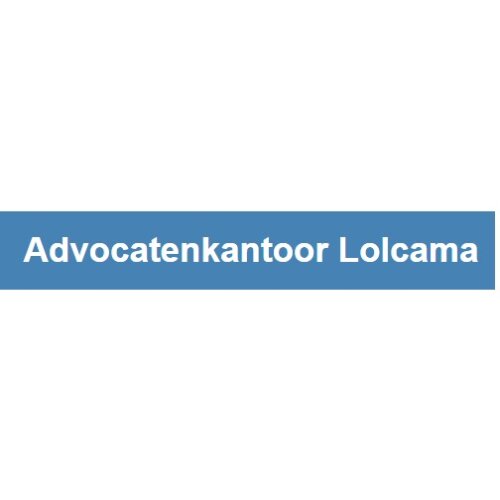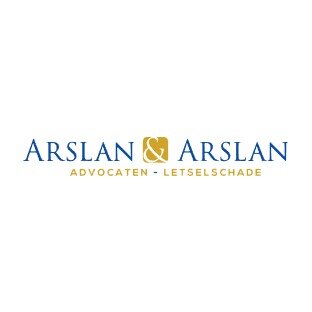Best Public-Private Partnerships (PPP) Lawyers in The Hague
Share your needs with us, get contacted by law firms.
Free. Takes 2 min.
List of the best lawyers in The Hague, Netherlands
About Public-Private Partnerships (PPP) Law in The Hague, Netherlands
Public-Private Partnerships, widely known as PPPs, represent collaborative projects between government bodies and private sector entities to deliver public infrastructure or services. In The Hague and throughout the Netherlands, PPPs are an important framework for building roads, public buildings, transport networks, and innovative community projects. The law governing PPPs in The Hague reflects both national Dutch regulations and local municipal policies, providing a structured and transparent approach for long-term cooperation between the public and private sectors.
Why You May Need a Lawyer
Engaging in a Public-Private Partnership involves navigating complex legal and regulatory requirements. A lawyer experienced with Dutch PPP law can help with:
- Drafting and negotiating PPP contracts to ensure balanced risk and responsibility distribution.
- Advising on public tender procedures and compliance with Dutch and EU procurement laws.
- Assisting with due diligence and feasibility studies for potential PPP projects.
- Managing disputes or disagreements between public authorities and private contractors.
- Advising on financing, tax incentives, and project implementation.
- Handling regulatory approvals and permits required for infrastructure and development projects.
- Ensuring compliance with environmental and social standards.
- Providing ongoing support throughout the lifecycle of a PPP project.
Local Laws Overview
In The Hague, the legal framework for PPPs is influenced by Dutch national law, European Union procurement rules, and municipal regulations. Notable legal aspects to be aware of include:
- Public Procurement Act (Aanbestedingswet): Stipulates procedures for public tenders to ensure transparency and competition.
- Contract law and administrative law: Governs the relationship and obligations between public bodies and private partners.
- Municipal Laws: The Hague may have specific municipal policies guiding local PPP projects, including zoning and land use rules.
- Project Finance and Tax Legislation: Determines the structure and incentives available for PPP investments.
- Environment and Sustainability Requirements: Compliance with Dutch and EU directives on environmental protection is mandatory for most projects.
Understanding and aligning PPP agreements with these local legal requirements is crucial to avoid delays, disputes, or invalid contracts.
Frequently Asked Questions
What is a Public-Private Partnership (PPP) in the Netherlands?
A PPP is a cooperative arrangement between a government body and a private company to finance, build, or manage a public project or service. The partnership allocates risks and rewards between both parties, intending to achieve efficient project delivery.
Are there specific PPP laws in The Hague?
While The Hague follows national Dutch PPP frameworks, the municipal government may set additional guidelines for local PPP projects, especially regarding zoning, permits, and local priorities.
How are PPPs awarded in The Hague?
PPPs are generally awarded through a public procurement process in accordance with the Aanbestedingswet and EU procurement directives. This ensures transparent and fair competition.
What roles do lawyers play in PPP projects?
Lawyers support in drafting contracts, navigating procurement procedures, ensuring regulatory compliance, managing risks, and handling disputes throughout the lifespan of the PPP agreement.
Can foreign investors participate in PPPs in The Hague?
Yes, foreign companies are welcome to participate in PPP tenders, provided they meet the relevant eligibility and compliance requirements under Dutch and EU law.
What are the risks in entering a PPP?
Risks include project delays, unforeseen costs, regulatory changes, contractual disputes, and performance failures. Effective contracts and legal advice help mitigate these risks.
What kinds of projects are suited for PPPs?
Common PPP projects include infrastructure such as roads, bridges, hospitals, schools, sustainable energy facilities, and public housing.
How is project financing typically structured?
Project financing often combines public funding, private investment, and sometimes EU subsidies or loans. Arrangements vary depending on project scope and risk allocation.
What happens if a dispute arises in a PPP?
Dispute resolution mechanisms are usually outlined in the contract. Common options include negotiation, mediation, arbitration, or litigation in Dutch courts.
Where can I find upcoming PPP opportunities in The Hague?
The Hague municipality and relevant ministries regularly publish PPP opportunities on public procurement platforms and government portals.
Additional Resources
If you are seeking further information or guidance regarding PPPs in The Hague, the following bodies and resources can be helpful:
- Municipality of The Hague (Gemeente Den Haag) - Economic and Infrastructure Departments
- Netherlands Enterprise Agency (Rijksdienst voor Ondernemend Nederland - RVO)
- Dutch Ministry of Infrastructure and Water Management
- Dutch Ministry of Economic Affairs and Climate Policy
- Netherlands PPP Knowledge Centre (Kenniscentrum PPS)
- Advocacy groups and law firms specializing in Dutch public procurement and PPP law
Next Steps
If you are considering participating in or initiating a PPP in The Hague, or you need legal assistance with an existing project, follow these steps:
- Identify and clearly define your project goals and the scope of the potential partnership.
- Gather all available information and documentation related to your intended PPP project.
- Consult with a lawyer or law firm specializing in public procurement or PPP law in the Netherlands to assess your situation and identify legal considerations.
- Review any relevant regulations, upcoming tenders, and application requirements with the help of your legal counsel.
- Work with your lawyer to draft, review, and negotiate all necessary contracts and agreements.
- Ensure ongoing legal compliance and seek advice throughout the project to address any emerging issues promptly.
Having expert legal guidance from the beginning will increase your chances of a successful, compliant, and efficiently managed PPP project in The Hague.
Lawzana helps you find the best lawyers and law firms in The Hague through a curated and pre-screened list of qualified legal professionals. Our platform offers rankings and detailed profiles of attorneys and law firms, allowing you to compare based on practice areas, including Public-Private Partnerships (PPP), experience, and client feedback.
Each profile includes a description of the firm's areas of practice, client reviews, team members and partners, year of establishment, spoken languages, office locations, contact information, social media presence, and any published articles or resources. Most firms on our platform speak English and are experienced in both local and international legal matters.
Get a quote from top-rated law firms in The Hague, Netherlands — quickly, securely, and without unnecessary hassle.
Disclaimer:
The information provided on this page is for general informational purposes only and does not constitute legal advice. While we strive to ensure the accuracy and relevance of the content, legal information may change over time, and interpretations of the law can vary. You should always consult with a qualified legal professional for advice specific to your situation.
We disclaim all liability for actions taken or not taken based on the content of this page. If you believe any information is incorrect or outdated, please contact us, and we will review and update it where appropriate.










